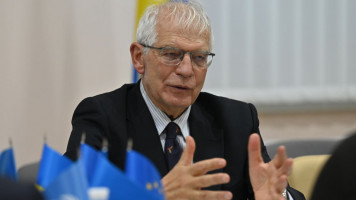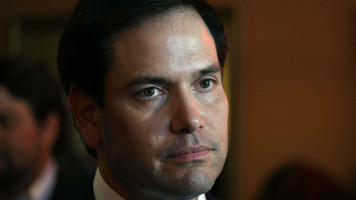Russia slams Trump's Iran strategy accusing him of using 'aggressive and threatening rhetoric'
Russia's foreign ministry criticised the new tougher Iran strategy announced by US President Donald Trump on Friday, accusing him of using "aggressive and threatening rhetoric".
The ministry said in a statement that Moscow "underlines once again that it is unacceptable to use aggressive and threatening rhetoric" and that "using such methods to solve problems that touch fundamental security interests of other countries is bound to fail."
It said Russia reacts "with sadness" to Trump's decision to withdraw his support for the 2015 Iran nuclear deal, but said it expected the accord to be honoured nonetheless.
"We view (the decision) as an element of a domestic debate in the framework of US national legislation," it said. "We expect that this step would not have a direct impact on the implementation of the deal."
Trump launched his tougher strategy earlier on Friday to check Iran's "fanatical regime" but stopped short of withdrawing from the landmark nuclear deal, leaving the decision in the hands of the US Congress.
| Read more: Trump doesn't understand the art of the Iran deal |
The Russian statement insisted that the nuclear deal "has already contributed to strengthening international peace and security".
"Iran is strictly adhering to its responsibilities," the foreign ministry added.
Deputy Foreign Minister Sergei Ryabkov further told Interfax news agency that "Russia remains committed to the Joint Comprehensive Plan of Action, is interested in keeping it and will continue to carry out its obligations. We call on the other parties to do the same."
The attitude of US lawmakers is "rather worrying, I would even say bleak," he added.






 Follow the Middle East's top stories in English at The New Arab on Google News
Follow the Middle East's top stories in English at The New Arab on Google News


